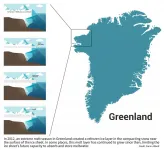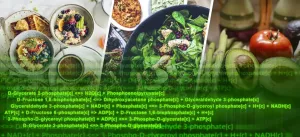Crucial action needed for coral reefs
2021-04-20
(Press-News.org) An international group of scientific experts co-directed by CNRS oceanographer Jean-Pierre Gattuso* has stated the requirements for coral reef survival in an article published in Biological Conservation. Over 500 million people rely on coral reefs for the protection they confer against submersion, the fishing resources they offer, and the tourism they help attract. Yet these ecosystems are among the most threatened by global warming: since the 1980s, there has been a rise in the number of bleaching episodes, during which corals expel the microscopic algae that keep them alive. While these events are reversible if the temperature change is only brief, prolonged bleaching can kill corals and the ecosystems associated with them.
The team of scientists, which comprises members of the Pew Marine Fellows Programme and of the Ocean Solutions Initiative, modelled future reef changes for two CO2 emission scenarios: the worst case and a scenario acceptable under the Paris Agreement. The former would lead to near extinction of reefs in 30 to 50 years, while the latter would give some corals time to adapt. Of the 16 possible actions for limiting the decline of coral reefs presented in the scientific literature, a massive energy transition is the most effective and the only plausible one on the global scale. Actions that may be taken on regional and local levels--e.g. designation of marine protected areas or selection of species best suited to new environmental conditions--may increase the adaptation potential of corals. The group asserts that saving reefs accordingly requires international political support, comparable to that rallied for campaigns against certain diseases.
INFORMATION:
*Research Professor at the Laboratoire d'Océanographie de Villefranche (CNRS / Sorbonne University) and Associate Scientist at IDDRI.
ELSE PRESS RELEASES FROM THIS DATE:
2021-04-20
The largest study of its type in the UK has identified differences in the immune response to COVID-19, between people with no symptoms, compared to those suffering a more serious reaction to the virus.
Researchers from the Wellcome Sanger Institute, Newcastle University, University College London, University of Cambridge, EMBL's European Bioinformatics Institute (EMBL-EBI) and their collaborators within the Human Cell Atlas initiative, found raised levels of specific immune cells in asymptomatic people. They also showed people with more serious symptoms had lost these protective cell types, but gained inflammatory cells. These differences in the immune response could help explain serious lung inflammation and blood clotting symptoms, and could be used to identify potential ...
2021-04-20
Scientists have developed a new biomaterial that regrows blood vessels and bone, potentially providing a single-stage approach when repairing large bone defects.
The study, led by researchers from RCSI University of Medicine and Health Sciences and SFI AMBER Centre, is published in the Journal of Controlled Release.
Previous RCSI-led research had found that activating a mechanosensitive gene, called placental growth factor (PGF), at different doses promoted bone regeneration and grew new blood vessels. Using this knowledge, the researchers developed a biomaterial that delivers PGF at different concentrations.
Inspired by the natural way in ...
2021-04-20
ROCHESTER, Minn. -- A new Mayo Clinic study bolsters evidence that colorectal cancer is often imprinted in family genes and passed on from one generation to the next.
In the study, published in Clinical Gastroenterology and Hepatology, researchers within the Mayo Clinic Center for Individualized Medicine found 1 in 6 patients with colorectal cancer had an inherited cancer-related gene mutation, which likely predisposed them to the disease. In addition, the researchers discovered that 60% of these cases would not have been detected if relying on a standard guideline-based approach.
"We found that 15.5% of the 361 patients with colorectal cancer had an inherited mutation in a gene associated with the development of their cancer," says Niloy Jewel Samadder, M.D., a Mayo ...
2021-04-20
Nearly a decade ago, global news outlets reported vast ice melt in the Arctic as sapphire lakes glimmered across the previously frozen Greenland Ice Sheet, one of the most important contributors to sea-level rise. Now researchers have revealed the long-term impact of that extreme melt.
Using a new approach to ice-penetrating radar data, Stanford University scientists show that this melting left behind a contiguous layer of refrozen ice inside the snowpack, including near the middle of the ice sheet where surface melting is usually minimal. Most importantly, the formation of the melt layer changed the ice sheet's behavior by reducing its ability to store future meltwater. The research appears in Nature Communications ...
2021-04-20
PHILADELPHIA-- Researchers at Penn Medicine have identified more genetic mutations that strongly predispose younger, otherwise healthy women to peripartum cardiomyopathy (PPCM), a rare condition characterized by weakness of the heart muscle that begins sometime during the final month of pregnancy through five months after delivery. PPCM can cause severe heart failure and often leads to lifelong heart failure and even death. The study is published today in Circulation.
PPCM affects women in one out of every 2,000 deliveries worldwide, with about a third of those women developing heart failure for life, and about five percent of them ...
2021-04-20
A myriad of genetic factors can influence the onset of diseases like high blood pressure, heart diseases, and type 2 diabetes. If we were to know how the DNA influences the risk of developing such diseases, we, we could shift from reactive to more preventive care, not only improving patients' quality of living but also saving money in the health system. However, tracing the connections between the DNA and disease onset requires solid statistical models that reliably work on very large datasets of several hundred thousand patients.
Matthew Robinson, Assistant Professor at the Institute ...
2021-04-20
Our guts may not provide long-lasting systemic immunity from COVID-19, which is where immune cells circulate through the body to provide protection to other organs, finds a new study published in Frontiers in Immunology. An analysis of blood samples from patients infected with SARS-CoV-2 revealed that immune cells circulating in the blood, which were triggered by the gut's response to infection, were limited in number when compared to immune cells that had been triggered elsewhere in the body.
"Although the gut is considered an important portal of entry for the virus, the immune response in the blood of COVID-19 patients is dominated by ...
2021-04-20
Philadelphia, April 20, 2021 - American artisan cheese has become increasingly popular over the past few decades. Understanding spoilage concerns and the financial consequences of defects can improve quality, profitability, and sustainability in the American artisan cheesemaking industry. In an article appearing in the END ...
2021-04-20
Some Himalayan glaciers are more resilient to global warming than previously predicted, new research suggests.
Rock glaciers are similar to "true" ice glaciers in that they are mixtures of ice and rock that move downhill by gravity - but the enhanced insulation provided by surface rock debris means rock glaciers will melt more slowly as temperatures rise.
Rock glaciers have generally been overlooked in studies about the future of Himalayan ice.
The new study, led by Dr Darren Jones at the University of Exeter, shows rock glaciers already account for about one twenty-fifth of Himalayan ...
2021-04-20
A new mathematical model for the interaction of bacteria in the gut could help design new probiotics and specially tailored diets to prevent diseases. The research, from Chalmers University of Technology in Sweden, was recently published in the journal PNAS.
"Intestinal bacteria have an important role to play in health and the development of diseases, and our new mathematical model could be extremely helpful in these areas," says Jens Nielsen, Professor of Systems Biology at Chalmers, who led the research.
The new paper describes how the mathematical model performed when making predictions ...
LAST 30 PRESS RELEASES:
[Press-News.org] Crucial action needed for coral reefs




